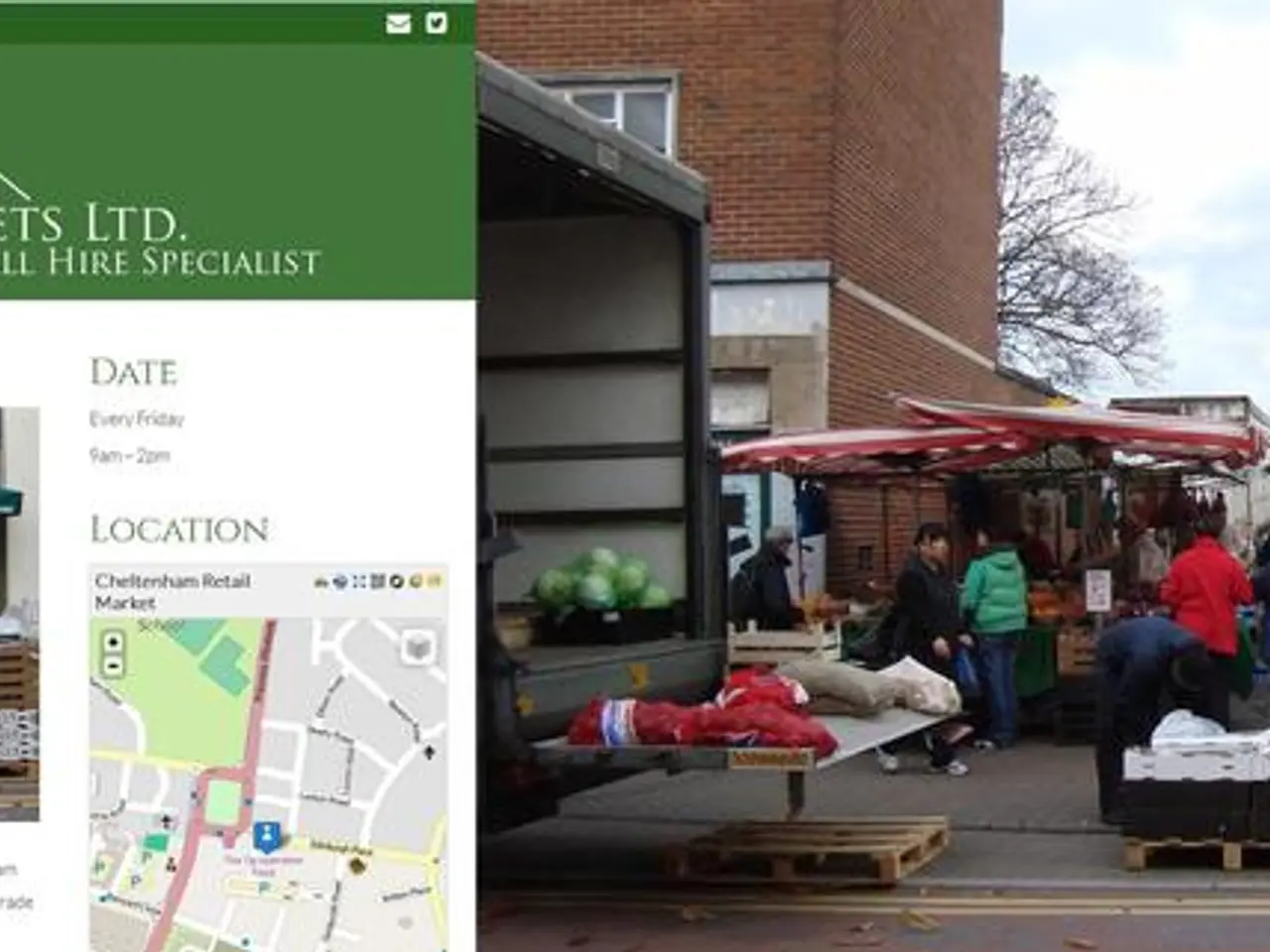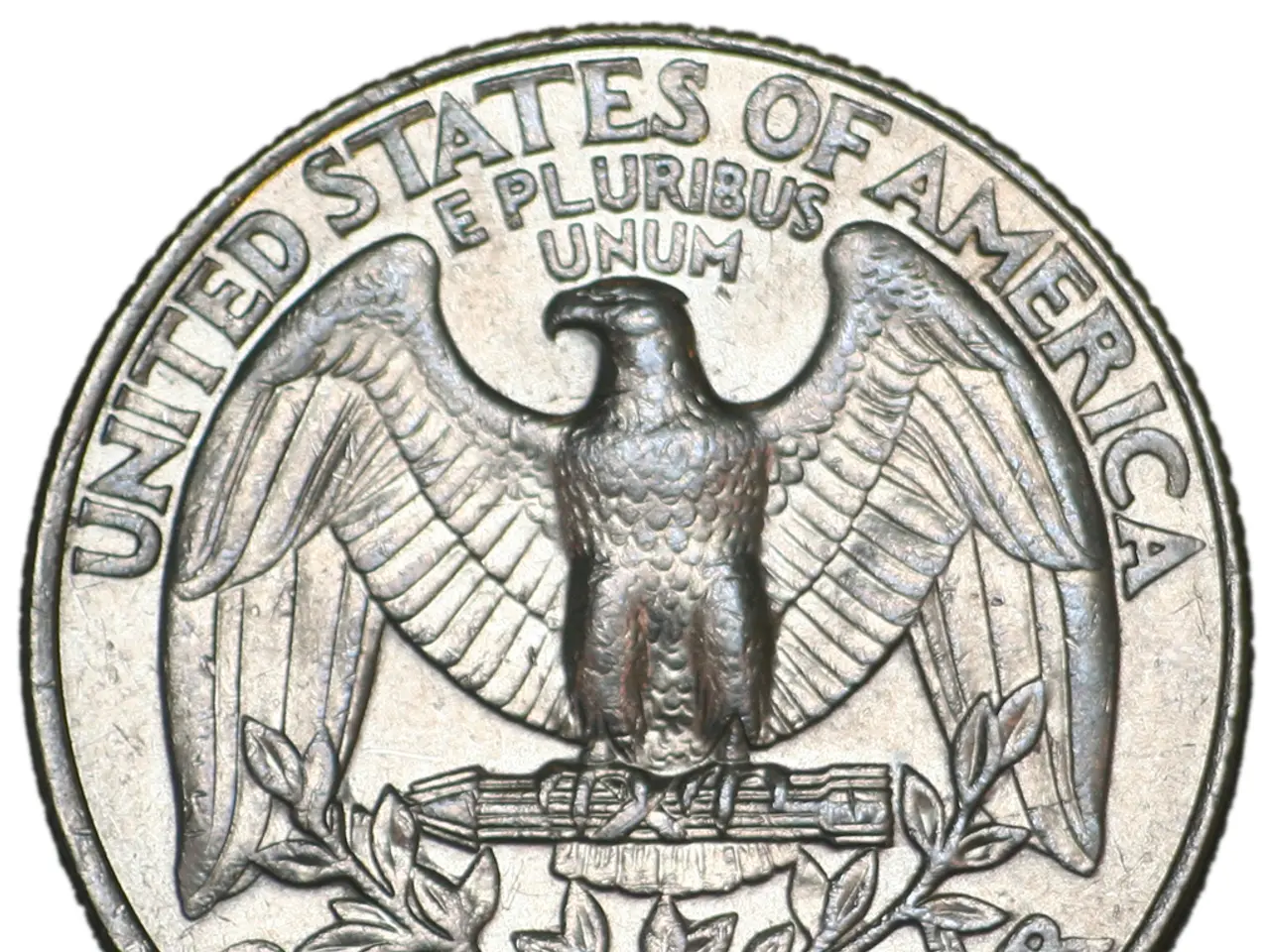Blockchain Revolutionizes Small-Scale Agriculture: Leveraging Decentralized Technology for Greater Farm Ownership and Control
In the ever-evolving world of technology, one innovation is making a significant impact on small-scale farmers across the globe - blockchain. This digital ledger system is transforming the agricultural industry, offering tools to overcome systemic barriers, improve efficiency, and build trust with consumers and buyers.
One of the most substantial benefits of blockchain is its ability to improve market access for small-scale farmers. By allowing farmers to create digital records of their produce, proving its origin, quality, and compliance with standards, they can access markets that require such documentation. Moreover, by providing a transparent and traceable supply chain, small-scale farmers can be integrated into larger markets more efficiently, connecting them with buyers more effectively.
Transparency is another key area where blockchain shines. The technology ensures that every transaction, from harvesting to delivery, is recorded and visible. This transparency builds trust among stakeholders, including buyers and consumers, which can lead to better market opportunities for small-scale farmers. Furthermore, real-time data provided by blockchain allows for more informed decisions, reducing the risk of fraud or misrepresentation.
Fair payments are another area where blockchain makes a difference. Platforms can enable direct and secure payments to farmers, reducing intermediaries and ensuring that payments are made promptly and fairly. For example, platforms in Kenya allow smallholder farmers to receive payments directly via mobile phones using USSD codes. Smart contracts on the blockchain can also ensure that payments are automatically made when certain conditions are met, such as the delivery of produce, thereby reducing delays and disputes.
Partnerships between tech companies and agricultural cooperatives are addressing these barriers by providing training and affordable tools. Governments and organisations are also investing in blockchain to support rural economies, ensuring that smallholders aren't left behind.
By embracing blockchain, small-scale farmers are not only surviving but thriving in a competitive global market. This data attracts buyers willing to pay a premium for sustainable products, creating a financial incentive for green practices. Farmers who adopt eco-friendly methods, such as regenerative agriculture or reduced pesticide use, can record their efforts on the blockchain.
Blockchain also supports carbon credit programs for small-scale farmers, incentivising sustainable farming practices. The integration of blockchain in agriculture is just beginning, with greater control over supply chains, finances, and market presence expected for small-scale farmers.
However, challenges remain, such as high setup costs, limited internet access in rural areas, and the need for technical training. Platforms like AgriLedger and IBM Food Trust are helping farmers in regions like Africa and Southeast Asia by allowing them to list their produce on digital marketplaces.
In agriculture, blockchain tracks every step of the supply chain, from planting to delivery, creating a tamper-proof record. Consumers can scan a QR code to verify if the produce is organic, sustainably grown, or ethically sourced, building trust and allowing farmers to command better rates.
In conclusion, blockchain technology offers a robust framework for improving the efficiency, transparency, and fairness of agricultural supply chains, benefiting small-scale farmers significantly. As the technology continues to evolve, it is expected to revolutionise the agricultural industry, empowering small-scale farmers to compete in the global market.
Small-scale farmers can leverage blockchain technology to create digital records of their produce, increasing market access by proving origin, quality, and compliance with standards. This transparency fosters trust with buyers and investors, making it easier for farmers to tap into lucrative markets that prioritize sustainability.
Moreover, blockchain platforms can enable direct, secure payments to farmers, reducing intermediaries and ensuring fair compensation for their produce. This, coupled with the ability to track every step of the supply chain, from planting to delivery, allows farmers to showcase eco-friendly practices and command better rates, thereby providing a financial incentive for sustainable farming.




